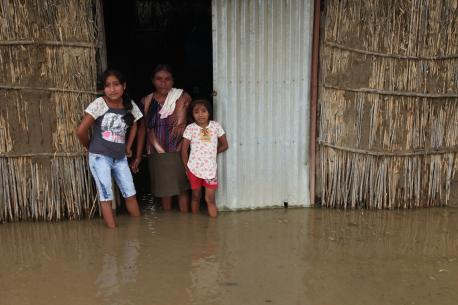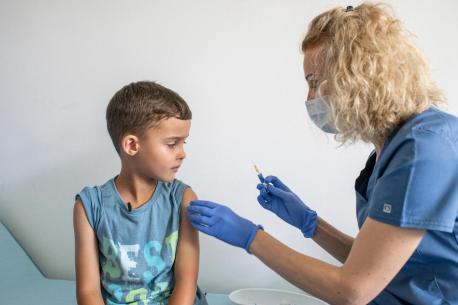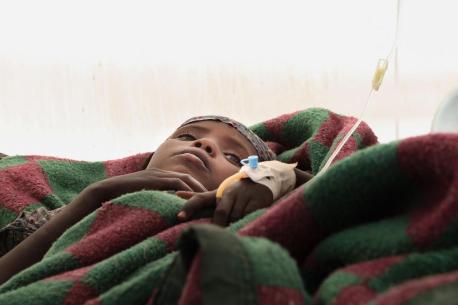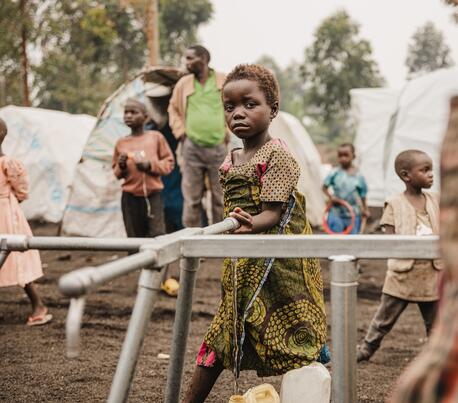
What UNICEF Is Doing About the Cholera Crisis in Africa
Countries across Africa are battling some of the worst cholera outbreaks seen in decades. UNICEF is on the ground working alongside government and local partners in the Democratic Republic of the Congo, Malawi, Mozambique, Zambia, Zimbabwe and elsewhere to contain the spread of the often deadly waterborne disease. But more donor support is needed to scale the response and accelerate longer-term solutions.
Conflicts, climate change among factors fueling rise in cholera outbreaks
In the United States and other high-income countries, cholera cases are extremely rare. But in poor countries, it is an ever-present threat.
Since 2023, 13 countries in Eastern and Southern Africa have been battling some of the worst cholera outbreaks to hit the region; for some, their worst in decades. As of Jan. 15, 2024, over 200,000 cases and more than 3,000 deaths had been reported.
Contracted by ingesting food or water contaminated with the bacterium Vibrio cholerae, cholera thrives in places that lack access to safe water and basic sanitation. The risks of an outbreak increase at times of conflict and climate disaster, when people are displaced and living in crowded camps with inadequate sanitation and hygiene support, and when storms flood densely populated neighborhoods where water and sanitation systems are already vulnerable.
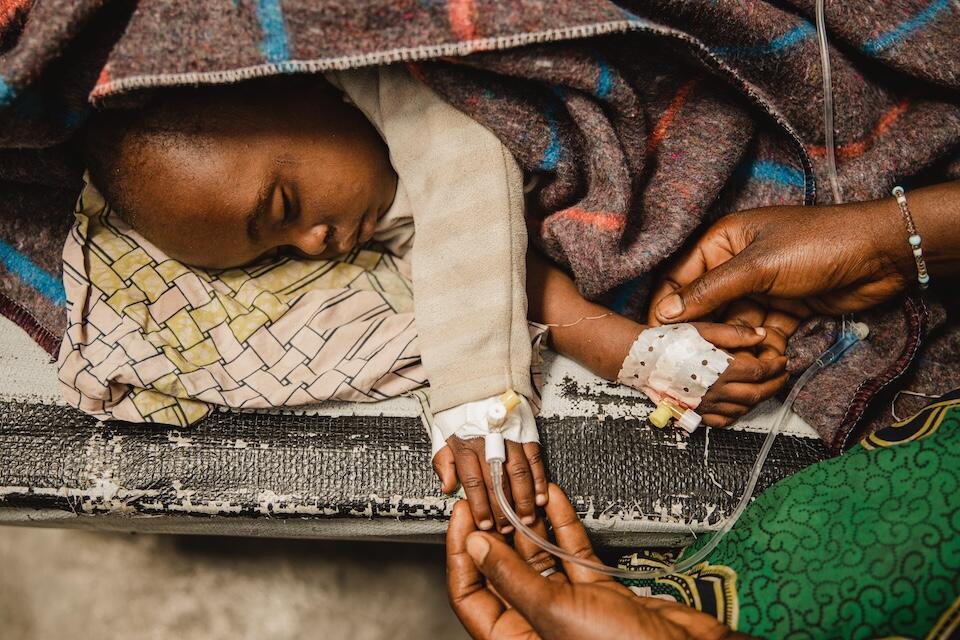
With local health systems overwhelmed, many lives are at stake. According to UNICEF, in some countries, 52 percent of all cases are children under age 15, with children under 5 accounting for approximately 40 percent of deaths and 30 percent of cases.
UNICEF is on the front lines of the crisis, working with governments and local and community-based partners to treat the sick and contain the spread, while also working to strengthen prevention and build resilience to future outbreaks through better monitoring, surveillance and response mechanisms, social behavior change, water and sanitation system upgrades and other solutions.
A waterborne disease that is especially dangerous for malnourished children
Most people infected with cholera have mild or moderate symptoms and can be easily treated with an oral rehydration solution. Severe cases can lead to acute watery diarrhea with severe dehydration; without timely treatment with IV fluids and antibiotics, these patients can die in a matter of hours.
Countries currently experiencing cholera epidemics are some of the same countries where child malnutrition rates are high — a separate yet related crisis fueled by some of the same factors that bring disease. Cholera is especially dangerous for malnourished children. Not only do their weakened immune systems leave them more susceptible to falling ill, they're also five times more likely to die if they do.
A child-centered cholera response that includes vaccination, education and resilience building
Throughout the region, UNICEF continues to provide lifesaving supplies to assist prevention and treatment while working closely with government agencies and community members to promote hygiene practices and climate-proof water and sanitation systems.
Cholera can be prevented with regular handwashing with soap and by maintaining separate water and sanitation facilities. Monitoring and surveillance activities are critical for containing the spread.
In a recent briefing with UNICEF USA, Grant Leaity, UNICEF's Representative in the Democratic Republic of the Congo, said that when a suspected case comes to a health facility for treatment, a rapid response team is immediately dispatched to clean and sanitize the person's home and surrounding area — even before lab results are in.
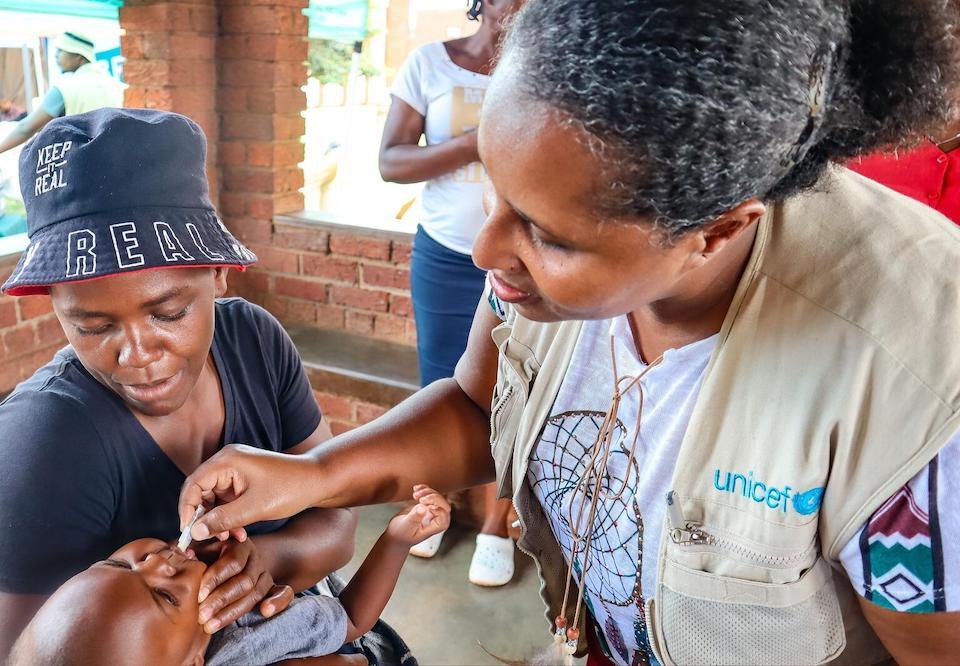
Community volunteers play a critical role in both prevention and response
A key piece of UNICEF's cholera response strategy is to help raise public awareness about the risks and ensure families have the information and resources they need to protect children.
That includes encouraging people to get vaccinated. UNICEF is supporting large-scale national cholera vaccination campaigns led by governments, in collaboration the World Health Organization (WHO) and other partners.
Community-based volunteers and health workers play a crucial role in these campaigns and in broader prevention efforts. They go door-to-door to share guidance and urge those who detect any symptoms of illness to seek care right away. In some communities, there is a stigma associated with the disease that precludes people from reporting it, which leaves others in their households and neighborhoods vulnerable.
Susan Peleti, a 26-year-old nurse at the Kapwepwe Health Post in Lusaka's Lilanda township, is one of hundreds of volunteers going door-to-door in their communities as part of a UNICEF-supported campaign in Zambia to spread the word about cholera risks and prevention.
"When I visit a location, I take the time to engage with community members, conducting thorough inspections of their sanitary facilities and waste disposal areas, and ensuring access to safe water sources," Peleti says. "However, my work doesn't stop there — I also make it a point to connect with individuals on a personal level, engaging in meaningful conversations to assess the well-being of their households. I inquire about their understanding of the current cholera outbreak and educate them on effective preventive measures."
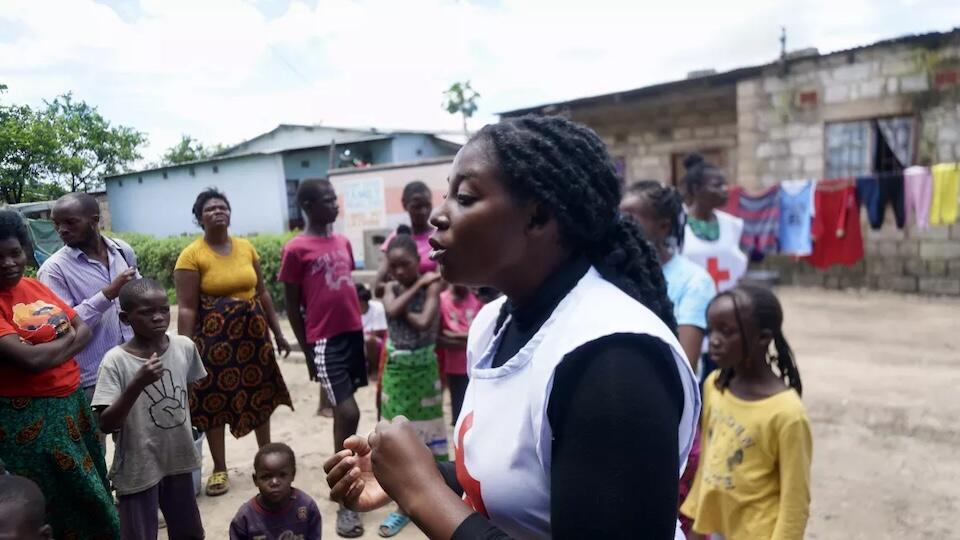
As part of its regional response, UNICEF has:
- provided emergency health, water and sanitation supplies as well as medical products, including cholera treatment kits, and equipment to establish cholera treatment facilities; more than 8.3. million people have been reached with critical water, sanitation and hygiene (WASH) supplies
- facilitated the delivery of over 26 million oral cholera vaccine doses to Ethiopia, Kenya, Malawi, Mozambique, Somalia, South Sudan, Zambia and Zimbabwe
- supported training frontline and community health workers on case management, WASH and infection prevention and control, alongside WHO and other partners
- reached 10 million people with messages on health and hygiene measures to prevent cholera and the importance of seeking medical treatment early, particularly for children
The repercussions for children go beyond health. "Learning loss is a major concern," Etleva Kadilli, UNICEF Regional Director for Eastern and Southern Africa, said. UNICEF helps keep kids in school during cholera outbreaks by advocating for the implementation of protective measures, including water and sanitation system upgrades.
Here is a closer look at UNICEF-supported efforts in specific countries.
Democratic Republic of the Congo
Cholera concerns are high in DRC, as more and more families are displaced by violent conflicts in the east and where heavy rains and flooding have left more than 2 million people – nearly 60 percent children – in need of humanitarian assistance.
UNICEF-supported cholera management teams are providing a first response when cholera cases are suspected. This includes distributing cholera prevention kits, decontaminating homes and communal latrines, and setting up hand disinfection stations. Teams are also stepping up prevention measures, including awareness and surveillance efforts, and upgrading cholera treatment centers, including in Kinshasa.
Ethiopia
In Ethiopia, nearly 30,000 cases of cholera were reported in 2023. UNICEF helped open 138 cholera treatment centers and reached nearly 22 million people with key messages related to hygiene and how best practices can help stop the spread of disease.
Malawi
In Malawi, UNICEF has adopted an integrated approach. Emergency health supplies and medical products that UNICEF provided to the Ministry of Health were used to treat more than 34,200 cases in 2023. UNICEF also supported oral vaccination campaigns targeting 6.2 million people in the hardest hit areas. With UNICEF's support, 12,000 health workers were trained in case management, surveillance and infection control and 3.1 million people have gained access to safe water. These interventions helped drastically reduce transmission in the country, particularly among children.
Mozambique
In Mozambique, UNICEF is implementing a large-scale response to what has become the country’s largest and longest-lasting cholera outbreak in recent history, with 45,000 cholera cases reported since September 2022. That response includes providing WASH services, and infection prevention and control services delivered through 44 cholera treatment centers, as well as focusing on awareness and prevention.
Alongside partners, UNICEF is providing support for cholera case management, delivering materials and supplies for use in treatment centers and locations where people receive oral rehydration treatment, and funding medical training and monitoring of health staff.
In January 2024, UNICEF supported the Ministry of Health to carry out a cholera vaccination campaign, reaching 2.2 million people in nine of the country’s worst affected districts. This has proven effective in controlling case numbers, and plans are now underway for preventive vaccination campaigns in hotspot districts, part of a national plan to eliminate cholera.
Somalia
Since early 2023, there have been 18,000 cholera cases reported in Somalia, half of them children, and 49 lives lost. UNICEF is providing safe drinking water and handwashing facilities to support households and communities, backing public education campaigns focused on personal hygiene and safe food handling, and helping to build capacities of health workers, including community health workers, to manage cholera cases.
Zambia
Zambia's Ministry of Health turned National Heroes Stadium in Lukasa into a care and treatment center, which UNICEF supplied with oral rehydration salts and other critical items.
UNICEF also helped bring in 1.7 million doses of oral cholera vaccine to support a vaccination drive in cholera hotspots across five districts of Lusaka province. About 99 percent of the target population have since been vaccinated under the single OCV dose regimen, including over 453,600 children under 5 and over 602,700 children aged 5 to 14.
From late January to mid February, the number of new cases of cholera recorded dropped by well over half, and schools were able to open on schedule for the 2024 term.
Zimbabwe
In Zimbabwe, UNICEF is supporting the Ministry of Health and Child Care to conduct single dose oral cholera vaccination (OCV) campaigns targeting 2.3 million people aged 1 year and older in 24 high-risk districts throughout the country. The roll-out of the OCV campaign in Zimbabwe is part of the multi-sectoral cholera response led by the government and supported by UNICEF and partners in affected areas, prioritizing improved support and treatment to people infected by cholera, securing access to safe water and sanitation and disseminating messages on cholera prevention and treatment.
UNICEF is a partner in the Global Task Force on Cholera Control, which seeks to end cholera as a global public health threat by 2030. Learn more.
UNICEF relies on voluntary donations from supporters and partners to fund its work. Flexible funding enables UNICEF to scale up response activities effectively and equitably based on need. Support UNICEF. Donate today.
